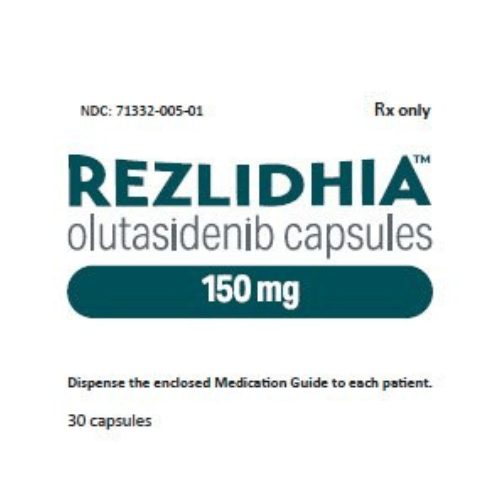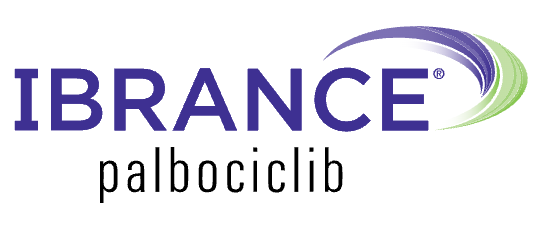Introduction

Rezlidhia, developed by Metrics Contract Services, was granted FDA approval on December 1, 2022, based on its positive benefit-risk profile and the results of clinical trials. It is available in a capsule formulation, with each capsule containing 150mg of olutasidenib.
Indication Of Rezlidhia
Rezlidhia (olutasidenib) is an FDA-approved drug indicated for the treatment of adult patients with relapsed or refractory acute myeloid leukemia (AML) with a susceptible isocitrate dehydrogenase-1 (IDH1) mutation as detected by an FDA-approved test.
Relapsed or refractory acute myeloid leukemia (AML) is a type of blood cancer that has come back after initial treatment or has not responded to treatment at all. It is a serious condition with a poor prognosis, but there are still treatment options available that can help patients live longer and improve their quality of life.
What is AML?
Acute myeloid leukemia (AML) is a type of blood cancer that starts in the bone marrow. It is a fast-growing cancer that causes the bone marrow to make abnormal blood cells, called blasts. These blasts crowd out normal blood cells, such as red blood cells, white blood cells, and platelets. This can lead to anemia, infection, and bleeding.
Key differences between relapsed AML and refractory AML:
| Relapse AML | Refractory AML |
| 1. Relapse means that the AML has come back after initial treatment. 2. This can happen because some leukemia cells were left behind after treatment or because the cancer cells have become resistant to the drugs that were used to treat them. | 1. Refractory AML means that the AML has not responded to treatment at all. 2. This can be a very challenging situation to treat, but there are still some treatment options available that can help patients live longer. |
Symptoms of relapsed or refractory AML
The symptoms of relapsed or refractory AML can be similar to the symptoms of AML, including:
- Fatigue
- Weakness
- Fever
- Frequent infections
- Easy bruising or bleeding
- Enlarged lymph nodes
- Swollen spleen
- Bone pain
The treatment for relapsed or refractory AML depends on the patient’s age, overall health, and the type of AML they have. Treatment options can include chemotherapy, targeted therapy, stem cell transplantation, and immunotherapy.
Mechanism of Action
Rezlidhia is an IDH1 inhibitor that works by blocking the mutated IDH1 protein, which is involved in the growth and survival of cancer cells. By inhibiting the mutated IDH1 protein, Rezlidhia can help to slow or stop the growth of cancer cells in patients with relapsed or refractory AML with a susceptible IDH1 mutation.
Dosage Information
The recommended dosage of medicine is Rezlidhia 150 mg orally twice daily, taken on an empty stomach at least 1 hour before or 2 hours after a meal, until disease progression or unacceptable toxicity.
Rezlidhia capsule should be swallowed whole with water and should not be crushed or opened. If a dose of Rezlidhia is missed, it should be taken as soon as possible, unless it is less than 6 hours until the next dose, in which case the missed dose should be skipped.
Drug Interactions
Rezlidhia capsules may interact with drugs that affect the CYP3A enzyme system, which is involved in the metabolism of many drugs. It is important to inform the healthcare provider of all medications, supplements, and herbal products being taken before starting Rezlidhia to avoid potential drug interactions.
Pregnancy
Rezlidhia may harm the unborn baby if given to a pregnant woman, as observed in studies with animals. We don’t have information on how Rezlidhia affects pregnant women since there is no available data to assess the risk associated with the drug during pregnancy. If you are pregnant, please inform your doctor before starting the treatment with Rezlidhia, as the medication may pose a risk to the unborn baby, based on animal studies.
Breastfeeding Women
It is not recommended to breastfeed during treatment with Rezlidhia and for at least 2 weeks after the last dose due to the potential for serious adverse reactions in breastfed infants.
Pediatric Use
The safety and effectiveness of Rezlidhia in pediatric patients have not been established.
Geriatric Use
No dosage adjustment is recommended based on age alone. However, geriatric patients may be more sensitive to the effects of Rezlidhia due to reduced kidney function or other age-related factors. Close monitoring is advised.
Renal impairment
For patients with mild to moderate renal impairment, no dosage modification is recommended for Rezlidhia. However, the recommended dosage has not been established for patients with severe renal impairment, kidney failure, and those on dialysis.
Hepatic impairment
Similarly, for patients with mild or moderate hepatic impairment, no dosage modification is recommended. Close monitoring for an increased probability of differentiation syndrome is advised. The recommended dosage of Rezlidhia has not been established in patients with severe hepatic impairment.
Side Effects
- The most common adverse reactions, including laboratory abnormalities are nausea, fatigue/malaise, arthralgia, constipation, lymphocytes increased, bilirubin increase, leukocytosis, uric acid increase, dyspnea, pyrexia, rash, lipase increased, mucositis, diarrhea, and transaminitis.
- Serious adverse reactions occurred in 25% of patients who received Rezlidhia. Fatal adverse reactions occurred in 1% of patients who received Rezlidhia, due to differentiation syndrome.
- Dose reductions of Rezlidhia due to an adverse reaction occurred in 11% of patients.
How To Buy Rezlidhia Online?
For those looking to obtain Rezlidhia, navigating the importation process may be necessary due to complex regulations. Sansfro Health, a specialized pharmaceutical procurement company, stands ready to assist in this importation journey, providing transparent pricing. To inquire about the Rezlidhia cost in India and to understand the importation process, reach out to the dedicated Patient Support Team at (+91) 9315705373 or via email at help@sansfro.com. Sansfro is committed to streamlining medication importation and ensuring accurate pricing details.
In summary, Rezlidhia (olutasidenib) is an FDA-approved drug for the treatment of adult patients with relapsed or refractory AML with a susceptible IDH1 mutation. It has shown promising results in clinical trials, but it is associated with a range of potential side effects and requires careful monitoring, especially in specific populations such as pregnant women, breastfeeding mothers, and geriatric patients. Patients should always consult their healthcare provider for personalized medical advice and to discuss the potential benefits and risks of treatment with Rezlidhia.
Reference



